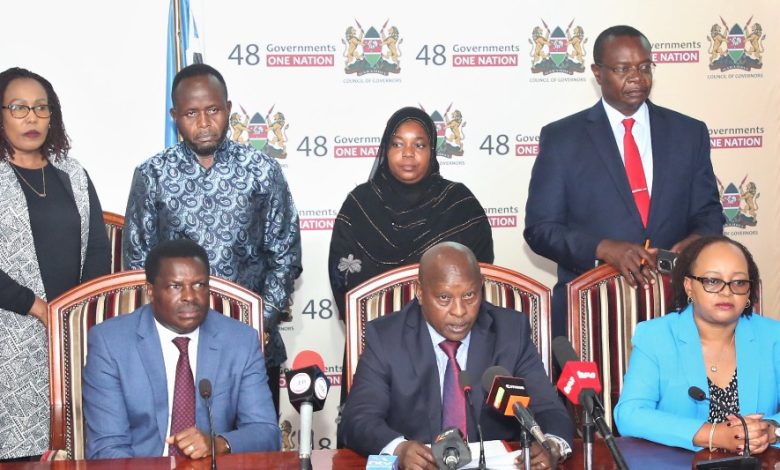Since the introduction of devolution in Kenya in 2013, gubernatorial elections have witnessed a mix of political dynamism and unpredictability. While some counties have maintained their governors for two terms, others have consistently voted out their incumbents after just one term.
In this article, we explore 10 counties in Kenya that have never re-elected a governor since devolution began. We analyze the political trends, possible reasons for voter behavior, and what this means for governance and development in these regions.
1. Nairobi County
Nairobi, the capital city and Kenya’s economic hub, has never re-elected a governor. The county’s leadership has been marked by political instability, leadership wrangles, and a high turnover of leaders.
- 2013: Evans Kidero (ODM)
- 2017: Mike Sonko (Jubilee) – later impeached
- 2022: Johnson Sakaja (UDA)
The impeachment of Sonko in 2020 and the subsequent takeover of key county functions by the Nairobi Metropolitan Services (NMS) further illustrate the county’s political turbulence.
2. Kiambu County
Kiambu, a highly political county in the Mount Kenya region, has also seen a new governor in every election cycle.
- 2013: William Kabogo
- 2017: Ferdinand Waititu (impeached in 2020)
- 2022: Kimani Wamatangi
Kiambu’s voters have been keen on change, and allegations of corruption and mismanagement have contributed to the county’s failure to re-elect an incumbent.
3. Meru County
Meru County’s political landscape has been characterized by intense competition and internal wrangles among leaders.
- 2013: Peter Munya
- 2017: Kiraitu Murungi
- 2022: Kawira Mwangaza
Each election cycle has seen an incumbent governor unseated, often due to shifting political alliances and voter dissatisfaction.
4. Nyandarua County
Nyandarua has never re-elected a governor, with voters consistently opting for change.
- 2013: Waithaka Mwangi
- 2017: Francis Kimemia
- 2022: Kiarie Badilisha
Development challenges and leadership struggles have played a role in the voting patterns.
5. Nyeri County
Nyeri’s gubernatorial seat has changed hands every election, with additional complications due to the untimely death of Governor Wahome Gakuru in 2017.
- 2013: Nderitu Gachagua
- 2017: Wahome Gakuru (passed away in office)
- 2022: Mutahi Kahiga (elected for a full term)
Though Kahiga was re-elected in 2022, he initially assumed office after Gakuru’s death, making him an exception rather than a governor who served a full first term before being re-elected.
6. Nakuru County
Nakuru, a key economic hub in Kenya, has never had an incumbent governor secure a second term.
- 2013: Kinuthia Mbugua
- 2017: Lee Kinyanjui
- 2022: Susan Kihika
Strong political competition and shifting voter preferences have kept incumbents from securing re-election.
7. Bomet County
Bomet’s gubernatorial race has remained highly competitive, preventing any governor from serving two consecutive terms.
- 2013: Isaac Ruto
- 2017: Joyce Laboso (passed away in 2019)
- 2022: Hillary Barchok (elected for a full term)
While Barchok won the 2022 election, his first tenure was due to Laboso’s passing, meaning no elected governor in Bomet has served two consecutive terms.
8. Wajir County
Wajir has consistently changed its governor in each election cycle.
- 2013: Ahmed Abdullahi
- 2017: Mohamed Abdi Mohamud (impeached in 2021)
- 2022: Ahmed Abdullahi (returned after five years)
While Ahmed Abdullahi won again in 2022, his non-consecutive terms indicate that no incumbent has been re-elected.
9. Isiolo County
Political shifts and clan dynamics in Isiolo have prevented governors from securing a second consecutive term.
- 2013: Godana Doyo
- 2017: Mohamed Kuti
- 2022: Abdi Hassan Guyo
Each election has brought in a new leader, showing that incumbency does not guarantee re-election in Isiolo.
10. Taita Taveta County
Taita Taveta voters have historically rejected incumbent governors in every election cycle.
- 2013: John Mruttu
- 2017: Granton Samboja
- 2022: Andrew Mwadime
Leadership struggles and development concerns have contributed to the high turnover of governors in the county.
Why Have These Counties Never Re-Elected a Governor?
Several factors contribute to this trend:
1. Unmet Development Expectations
Many voters believe that their leaders have not delivered on campaign promises, leading them to opt for change.
2. Political Wrangles and Impeachments
Counties like Nairobi, Kiambu, and Wajir have seen governors impeached or embroiled in controversies, making re-election difficult.
3. Shifting Political Alliances
Changes in party dynamics and political endorsements often influence election outcomes, particularly in regions where parties hold significant sway.
4. Voter Fatigue and Demand for Change
Some counties experience voter fatigue with their leaders, leading to a preference for fresh leadership.





